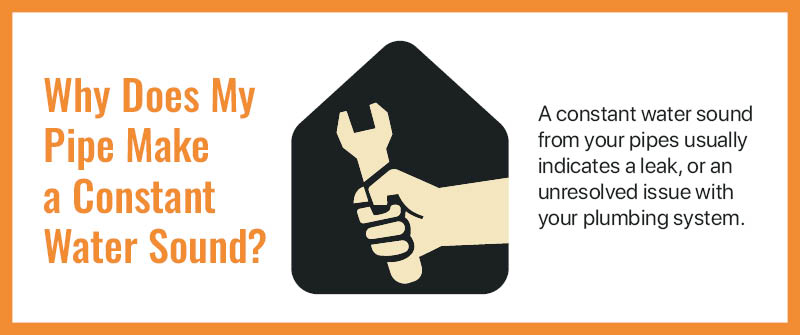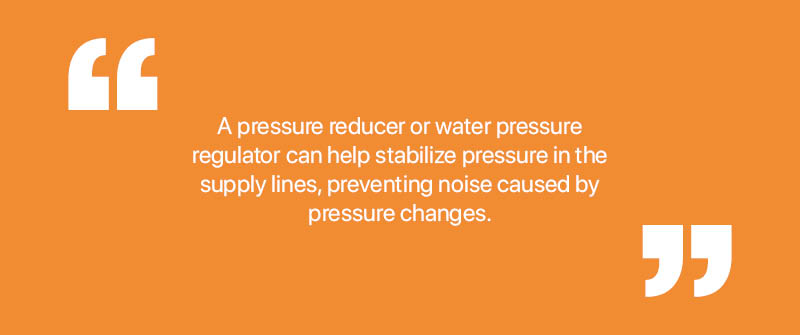Why Do My Water Pipes Make Noise? Common Causes and Fixes
How Do I Stop My Water Pipes From Making Noise?
Water pipes can often generate a variety of noises that can be both annoying and concerning. There are several common causes of noisy water pipes, such as trapped air, high water pressure, or loose fittings. These strange noises can be a sign of underlying plumbing issues that should not be ignored. The good news is that with some simple solutions and the help of professional plumbing services, you can often reduce or even eliminate these sounds. The first step is to accurately identify the type of noise you are dealing with, whether it is banging, humming, or gurgling, as well as the importance of identifying what is causing noisy pipes. Once you know what you are up against, you can take targeted steps to resolve the issue.
In modern homes, features like water pressure regulators and advanced plumbing systems may already help address some of these issues.
Identify the Type of Noise
Different sounds coming from your water pipes often have different causes.
- Banging, banging noise, banging noises, and loud banging sounds are usually signs of a problem known as water hammer, which occurs when water suddenly stops or changes direction.
- Humming could be due to high water pressure.
- Gurgling, gurgling sound, or gurgling noise might indicate that air bubbles, air pockets, or air trapped in the supply line or supply lines are present, or that there is a blockage in the pipes.
- Squealing sound can be caused by trapped air or worn-out washers in taps and valves.
- Hissing sounds may point to vent blockages or improper vent installation.
- Loud noise and loud noises often result from loose or improperly secured pipes.
- Vibrating sounds can occur when air is compressed within the pipes, especially in the supply lines.
Understanding these differences can guide you in finding the right solution.
Install a Water Hammer Arrestor
One of the most common solutions for banging noises is to install water hammer arrestors. Installing water hammer arrestors is recommended because they absorb shockwaves caused by water hammers—loud banging or hammering sounds that occur when water flow suddenly stops or changes direction. Water hammer arrestors or air chambers, which are vertical pipe sections installed behind the wall near fixtures, act as cushions to absorb the force of sudden water shut-offs and prevent pipes from rattling. Modern water hammer arrestors are often installed in the wall and serve the same purpose as traditional air chambers, ensuring quiet plumbing operation by reducing the impact of water hammers.
Check and Secure Loose Pipe Fittings
Loose pipes and loose fittings are common causes of noise, especially if they rattle as water flows through them. Worn washers or a worn out washer in plumbing fixtures can also cause rattling or squealing noises. Check your pipes and plumbing fixtures for any signs of looseness in the fittings or worn washers, and tighten or replace them as necessary. Adding additional brackets or pipe supports can also help secure the pipes and reduce noise.
Insulate the Pipes to Reduce Noise
Hot water pipes, especially those made from copper pipe or copper pipes—a malleable metal—are prone to expansion and contraction, which can lead to noise. Insulating your water pipes can help reduce the expansion and contraction of the pipe material, particularly in copper pipes, and minimize noise. Professional plumbers can assist with insulating pipes to ensure effective noise reduction and proper installation. Pipe insulation is relatively easy to install and can dramatically reduce the noise produced by your pipes, particularly in colder temperatures.
At B&W Heating, Cooling, Plumbing, and Electric, we understand how unsettling the sound of noisy pipes can be. Our expertly trained plumbers are here to assess your situation and provide effective solutions. From installing a water hammer arrestor to tightening pipe fittings, we are committed to restoring peace and quiet in your home. Don’t hesitate to reach out if you need assistance with your plumbing system!
Why Is My Water Pipe Making Weird Noises?
The most common culprit for noisy water pipes is something called a water hammer. As we touched on briefly before, a water hammer usually occurs when water flow suddenly stops or changes direction abruptly. That change in movement and water pressure causes something called a “pressure shock wave,” which makes the pipes bang against each other or against their surroundings. You might notice a water hammer when you turn off a faucet suddenly, for example.
Another reason your pipes might be making weird noises is excessively high pressure in your water lines. High pressure can be diagnosed and managed with a water pressure regulator or a pressure reducer. Water pressure is typically measured in pounds per square inch (PSI). If pressure issues persist, check the main water valve and shut off valve on your main water line or other water lines for proper operation. Persistent high pressure can lead to plumbing problems such as leaks, pipe vibration, or water hammer. If you suspect a plumbing problem or need help troubleshooting, contact a professional plumber or a local plumber for assistance.
Lastly, weird noises in the pipes can also come from temperature changes. Changes in water temperature from the hot water heater or the cold water supply can cause pipes to expand and contract, which can sometimes cause weird noises, typically banging or creaking sounds. This is an issue solved by ensuring that pipes are properly fitted and insulated.
Why Does My Pipe Make a Constant Water Sound?
In most cases, a constant water sound from your pipes usually indicates a leak, or an unresolved issue with your plumbing system, but issues with the drain, drains, or drain pipes can also cause these sounds. Draining problems or a clogged pipe may result in water not being fully drained, which can lead to persistent noise. Additionally, build up of debris in the plumbing system can cause noisy plumbing and may signal a more serious plumbing problem.
Check for Leaks in the System
The first step in troubleshooting this sound is to thoroughly check for leaks within your plumbing system, including the water line and water lines. Unnoticed leaks can cause a steady flow of water, leading to an ongoing water sound. Examine your home for any damp spots, water stains, or visible drips in areas where plumbing is present. Sometimes the leaks may be behind walls, making them harder to detect.
Inspect All Faucets and Fixtures
Another tip is to inspect all faucets, fixtures, and valves for slow drips or leaks that could contribute to the constant sound of running water. Even a small drip from a faucet that is not fully closed can accumulate and create a persistent hum in the background. Listen closely to determine if the noise coincides with any particular fixture. Don’t forget to check toilets too—a faulty flapper can cause the tank to continuously fill, creating that water sound you hear.
Review Water Meter for Unnoticed Usage
If the above steps do not resolve your issue, it’s time to review your water meter. Make sure no water usage is happening in your home—that means all faucets are off, and no appliances like washing machines or dishwashers are running. Then, take a look at your water meter. If it continues to register usage, it’s a strong indication that there is a leak somewhere. Sometimes, leaks in the supply line may not be immediately visible but can be detected by monitoring the water meter. Identifying and fixing leaks not only resolves unnecessary water sounds but also prevents wasting tons of water and increase your water bill.
B&W Heating, Cooling, Plumbing, and Electric can help you investigate these issues with our expert plumbing services.
Why Does My Pipe Make a Sound When the Water Is Not Running?
If your pipes are specifically making noises when the water isn’t running, underlying issues or plumbing problems may be causing noisy pipes. This could be due to thermal expansion—especially in hot water pipes—water pressure fluctuations, or sediment buildup.
Thermal expansion often affects hot water pipes, as they expand and contract with temperature changes, which can lead to creaking or popping sounds.
Pressure fluctuations can also be a culprit. Sometimes, water rushes through pipes even when not in use, creating vibrations or banging noises.
Sediment buildup inside pipes can further contribute to these plumbing problems, increasing the likelihood of causing noisy pipes.
Investigate Thermal Expansion of Pipes
One common cause of noises in pipes when water isn’t flowing is thermal expansion. Hot water pipes, especially copper pipes, are particularly susceptible to expansion and contraction due to temperature changes. As hot water flows through copper pipes, particularly when using a water heater, the pipes expand. This expansion can cause them to rub against nearby surfaces or fittings, resulting in knocking or clicking sounds. Once the pipes cool down, they contract, which might also create noise. Insulating your pipes or ensuring adequate space for expansion can help address this issue.
Look for Water Pressure Fluctuations
Fluctuations in water pressure can also cause sounds when water isn’t actively being used. A pressure reducer or water pressure regulator can help stabilize pressure in the supply lines, preventing noise caused by pressure changes. This is due to variations in local water supply pressure, causing pipes to expand and contract intermittently. Installing a pressure regulator can stabilize these fluctuations and eliminate the noise. Water pressure fluctuations often occur at night due to reduced demand, making this a common time to notice sporadic sounds.
Check if Sediment Buildup Is Causing Obstruction
Another potential cause of pipe noise is the build up of minerals or debris, which can lead to a clogged pipe or drain and cause whistling or hissing sounds as water tries to pass through. Over time, this accumulation may partially obstruct the pipes or drains, resulting in unusual noises and reduced efficiency. Flushing your water heater regularly and cleaning your pipes and drains can help prevent and resolve these obstruction-related noises.
Contact B&W for Help
Eliminating mysterious pipe noises requires a keen understanding of your home’s plumbing system. Seeking professional advice ensures that any underlying issues are addressed effectively. At B&W Heating, Cooling, Plumbing, and Electric, we specialize in diagnosing and resolving plumbing challenges with expertise and care. Our experienced team delivers quality solutions tailored to ensure silent and efficient piping in your home. Serving Central Indiana since 1961, we offer fair pricing and rapid response times without the worry of overtime fees, keeping your home peaceful and functional. Schedule an appointment with the B&W team today!



